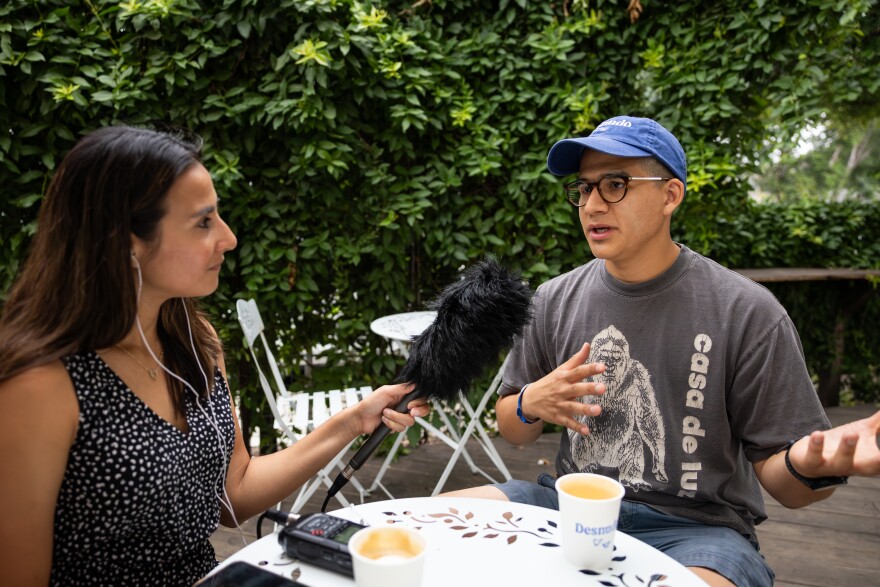Austin’s public radio stations, KUT and KUTX, will forgo $1.2 million in annual funding after U.S. lawmakers made good on a pledge to cut federal money for public media.
The funding covered two years, amounting to a $2.4 million immediate loss of promised money for the station.
Lawmakers . It takes back roughly $1.1 billion previously allocated to the Corporation for Public Broadcasting, which doles out grants and other funds to public radio and television stations across the country.
President Trump still needs to sign the bill. He has made clear his support for the cuts.
The vote was primarily along party lines, with nearly all Republicans in the House and Senate voting in favor. That includes Senators Ted Cruz and John Cornyn, who represent Texas.
The cuts make up about 6% of KUT/X’s annual budget. If that hole is not filled, Debbie Hiott, the station’s general manager, said the organization may not be able to fill open positions and could stop airing certain shows.
“We’re reviewing all of our shows �� this is the national shows, local segments that we run �� and we’re deciding whether or not we can afford to continue those shows,�� Hiott said. Like other local public media stations, KUT/X pays to air national programming, such as Morning Edition and All Things Considered.
Hiott said the loss of funding could also mean more on-air time is automated rather than managed by a local host.
The vast majority �� about 90% �� of the station’s funding comes from private donations from individuals and businesses. Hiott said KUT/X is hoping listeners will fill the gap.
Since Thursday, about 500 new people have become members.
Republicans have long targeted federal funding for NPR and PBS, saying the stations have a left-leaning bias.
NPR’s CEO Katherine Maher refuted this with Status, an outlet that covers news media.
"This argument about public media being ‘biased�� is a stalking horse,�� she said. “We report on soybean farmers and LGBTQ activism. We report on coal miners and eco-warriors.��
Lawmakers who supported the cuts also said taxpayer money should not be spent on the news.
“There are more than enough media entities that are capable of communicating the news and other information of interest to our constituents,�� Sen. Cornyn, who represents Texas, said after the vote on the rescission bill last week. “We don't need to subsidize those with taxpayer money.��
But numerous organizations have documented the continual loss of local journalism outlets over the past two decades.
In the past 20 years, more than 3,200 print newspapers have disappeared, Northwestern University’s Local News Initiative. Researchers with the initiative said that amounts to roughly 55 million people in the country who live with limited access to local news.
Hiott said she believes federal funding has helped public media stations weather the economic realities of a loss of advertising that has forced many local newspapers to shutter. Since 2019, the station has added 10 positions to its newsroom, which includes KUT News, the Texas Standard and the Texas Newsroom.
Ultimately, smaller public media stations will be hit harder by the federal funding cuts, since more of their budget is made up of money from the CPB.
Marfa Public Radio, for example, said it is set to lose $463,000, which is about a third of its budget. The station broadcasts throughout West Texas, including Alpine and Odessa. On its website, the station called the loss of federal funding “the biggest financial challenge�� in its history.
Disclosure: This story was reported and written by KUT’s Audrey McGlinchy and edited by Wynne Davis. No executive at KUT reviewed this story before it was published.
Correction: This story has been updated to reflect that the majority of congressional Republicans voted to end federal funding for public media. The story has also been updated to clarify CPB stands for Corporation for Public Broadcasting.




